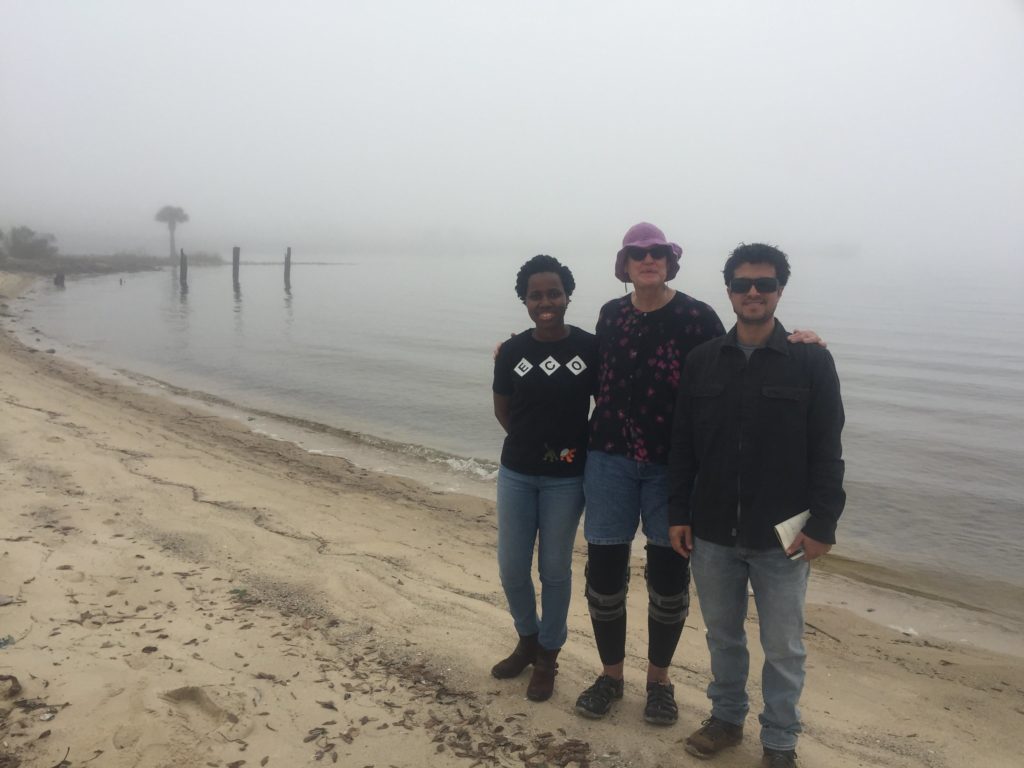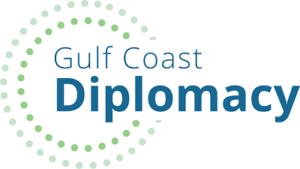On April 27, Gulf Coast Diplomacy had the pleasure of partnering with Global Ties Detroit to host a one-of-a-kind Small World Café. For the first time, the two groups brought in speakers from each region to discuss environmentalism with an International Visitor Leadership Program (IVLP) alumna. For an hour, we heard from Genevieve Nowak from Detroit, Michigan; Nataly Torres-Pinzon from Colombia; and Barbara Albrecht from Pensacola, Florida. The three women spoke on their work in environmentalism and what they hope to see for the future.
Genevieve Nowak centers her work on Belle Isle Park, a public park in Detroit that spans a space larger than New York’s famed Central Park. Seeing the environmental impacts of littering in the beautiful natural space has fueled her passion for learning what she can do in her day-to-day life to help reduce her environmental impact. For example, Nowak strongly advocates for cutting down on single-use plastics. She explained how these plastics, such as plastic water bottles, enter waterways to break down into microplastics. Fish ingest them, and they can end up on dinner plates where then we humans consume them. With this in mind, Nowak speaks at youth programs where she educates children about the harms of single-use plastics and provides them with a reusable water bottle at the end. Through this, Nowak plays a vital part in cutting down on the number of plastics that end up in nature, keeping the beautiful Belle Isle Park a touch cleaner.
Nataly Torres-Pinzon takes an original approach to environmentalism in Colombia. Having come to the United States with the IVLP on a project examining women, peace, and security, Torres-Pinzon now explores environmental impact in relation to women. Specifically, she explained how she focuses on women in rural communities, where they are frequently relied on for unpaid labor in the house and farming. Because many of these communities depend heavily on agriculture as a way of life, they are particularly vulnerable to the impacts of climate change, especially as there is evidence to suggest that the rainy and dry seasons in Colombia are currently changing. Since women play such an essential role in these communities, they feel these detrimental environmental impacts particularly hard. Unfortunately, some of this has resulted in forced migrations as people lose homes and livelihoods to climate change, an issue Torres-Pinzon hopes to address with her environmental work.
Barbara Albrecht has spent years studying the quality of Pensacola’s waterways and aquatic resources and how the community can improve them. Using an activist-based approach, Albrecht has learned a great deal about the challenges the community faces and what steps are necessary to solve them. For example, she explained that tourism and development contribute to many of the current aquatic issues, notably pollution of bayous. To fix them, Albrecht suggests that government action would help provide the funds, but more community support is needed first. She continues to work to garner this support in the hopes of regaining the beautiful waterways for which the area is known.
Hearing from these three knowledgeable women was an incredible experience. Each cares deeply about the environment and is passionate about working to succeed in improving it. With activists like these women, surely there will soon be an improvement in the beautiful nature surrounding us.

